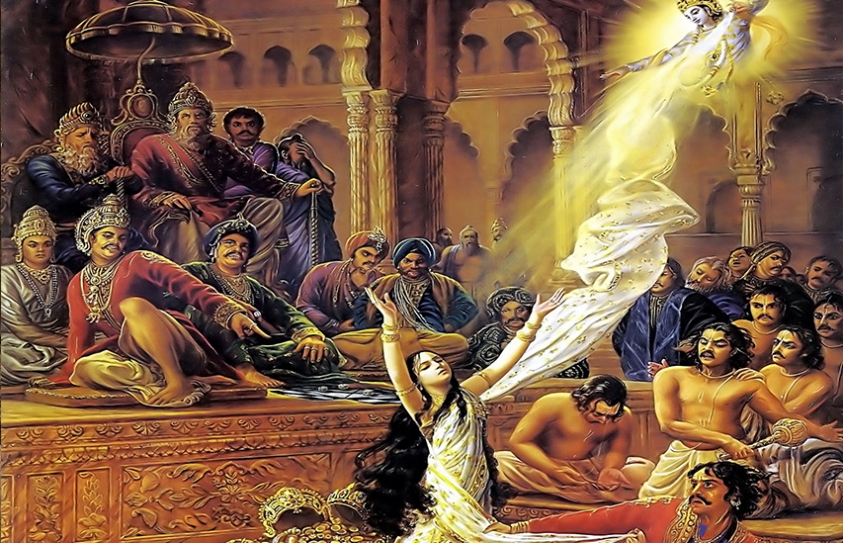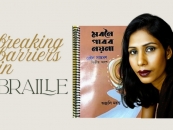Of all the characters in the Mahabharat, it is perhaps Abhimanyu who most strongly personifies the futility of war, and the toll it takes on the young and innocent, who are caught in a situation their elders have created.
The sixteen-year old son of Arjun and Subhadra hears all about entering the deadly Chakravyuh formation in his mother’s womb, when his father is telling her about it; but when Arjun tells her how to exit the maze, she falls asleep, so her unborn son only knows half of the technique. Atul Satya Koushik’s play, Chakravyuh, places Abhimanyu at the centre, as the tragic pawn of war.
The Battle of Kuruskhetra, between Pandava and Kaurava cousins was savage and not always in keeping with the accepted rules or warfare. Even the righteous Pandavas with Lord Krishna on their side, were not averse to deceit.
When the Kauravas find that they are not making any headway in the war, they found a way of getting Arjun away from battlefield, and tried to lure the Pandavas into the Chakravyuh. However, only Abhimanyu (Sahil Chhabra) managed to get in, was trapped and killed by seven of the greatest warriors on the Kaurava side. He was only sixteen when he died, and left his pregnant wife Uttara to cope with his tragically premature death.
Koushik has set-up the battle sequences very well, even though the overuse of bright LED lights and the smoke machine was a bit jarring. The glittering costumes were obviously inspired by the TV serial which had Nitish Bharadwaj in the role of Krishna, which he reprises in Chakravyuh.
The play, written in verse, is a delight to hear, and most of the actors speak Hindi with admirable clarity. Chakravyuh actually comes together in the second half when Krishna has his say. When Uttara asks how she will bring up a fatherless child, Krishna talks of how the male and female are part of everyone, and women have always managed to channel their male side to raise their children on their own.
He also derides the tendency of everyone—from Draupadi to Bhim—to make grandiose vows. If it weren’t for Draupadi’s vow never to tie her hair till she could wash it with Duryodhan’s blood, the war may not have been fought with such brutality; if it weren’t for Bhim’s vow to kill Duryodhan and Dushassan, Abhimanyu would not have spared them when they were at the mercy of his sword. And finally he explains the meaning of the Chakravyuh, and why it is so tough to get out it. The maze is life itself, and no matter how courageously one lives an fights, it is impossible to escape death.
Breaking News
- Festivals
BHARAT RANG MAHOTSAV 2026 OPENS MUMBAI STAGE
0 - Sustainable Development
TWO-CHILD NORM ENDANGERS CHILDREN AND DEMOCRACY
0 - Kaleidoscope
ART IS BORN FREE: TEJAS SONI’S JOURNEY
0 - Festivals
TRIS FEBRUARY 2026 EXPLORES CINEMA ART CONSCIENCE
0 - Alternative Entertainment
BOLLYWOOD FAME, FORGOTTEN STARS, CAUTIONARY TALES
0 - Bollywood
MARDAANI 3 RETURNS WITH GRIT AND LIMITS
0 - Business and Politics
BOB DYLAN’S IMMIGRANT LAMENT STILL HAUNTS US
0 - Festivals
KALA GHODA ARTS FESTIVAL 2026: AHEAD OF CURVE
0 - Movies
WHEN INDEPENDENT FILMS FIND THEIR AUDIENCE
0 - Trending
HOUSEFULL WITHOUT AUDIENCES: THE BOX-OFFICE ILLUSION
0





-173X130.jpg)

-173X130.jpg)
-173X130.jpg)

-173X130.jpg)
-173X130.jpg)
-173X130.jpg)